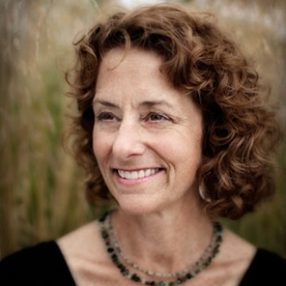
Nani Waddoups (she/her)
Licensed Professional Counselor
Navigating toward existential meaning, and consideration of conditions at play are the roots of my counseling philosophy and style.
Client Status
Contact
503-784-6214
202 SE 86th Avenue
Portland, OR 97216
At a Glance
Me
Rate: $160
Provides free initial consultation
Provides telehealth services
Practicing Since: 2012
Languages: English
Services
- Individual
- Group
- Relationship
Insurances Accepted
- Out of Pocket
- Out of Network
My Ideal Client
I am committed to a life of self-study and to supporting others in their desire for self-understanding. I love the collaborative effort of unlocking the puzzle of why we do what we do, why we are impacted by specific words or experiences. I believe that it is this self-knowledge and awareness that supports us in our efforts to both be creative in our visions for our lives, and in the strategic navigation of the way there.
My Approach to Helping
My Personal Beliefs and Interests
Techniques I Use
Specialties
-
Attachment Theory
Attachment Theory is an extraordinarily helpful tool to understand how we developed our baseline relational styles. By studying our earliest emotional attachments to our primary caregiver(s), we can understand how we developed our sense of trust, security, and self-assuredness in relationship to others. Knowing your attachment style can become a navigational compass in relationships.
-
Mindfulness-based
My approach is influenced by the Buddhist concept of 'dependent arising,' which means that whatever arises in us is the result of multiple conditions. Part of therapy is exploring the conditions of the moment to see how they may be influencing what is currently arising in one's attention or through one's behavioral inclinations.
-
Existential
My therapeutic philosophy is rooted in the existential belief that we want meaning and purpose for our lives, and that we have the strengths to make our lives how we want them to be. My job is to creatively engage in the process of clarifying that vision and supporting the efforts to navigate the way there.
Issues I Treat
Specialties
-
Depression
There are innumerable conditions affecting our moods at all times. Sometimes we are aware of them -- a loss, a joy, anticipation. Other times these conditions are outside of our consciousness -- the pain in the world touching our hearts, a lingering dream. Therapy helps to characterize the quality of an emotional state, and then explores our ability to affect the conditions at play.
-
Anxiety
Part of the Existential philosophy that guides my practice is the acceptance that Anxiety is a part of being human. Awareness that our time is limited, and ultimately we alone are responsible with what we do with our lives, creates a natural anxiety. When this anxiety rises to a distressing level, therapy helps to recalibrate, and transform that energy into fuel for a self-directed life.
-
Relationship / Marriage Issues
Though it may seem like therapy cliche, exploration of our attachment style in our family of origin is critical in the illumination of adult relational patterns. How secure we are in the world of relationships is influenced by our earliest attachments. Are we trusting? Or are we in anticipation of a betrayal? Can we be authentic and transparent? Or do we fear abandonment and rejection?
-
Loss or Grief
Grief is a deeply personal experience, and everyone processes thier grief in their own unique way. There is no right way to grieve, no timeline on which we can mark when grieving 'should be over,' no roadmap of what to expect after a loss. My work with clients experiencing loss is to validate all of their responses as right for them, and as a necessary part of the transformational process.
-
Coronavirus/COVID-19
The global pandemic of COVID-19 has introduced a myriad of new conditions that impact both our logistical and internal worlds. The effort to navigate all that is arising in us can be exhausting, and the unpredictability of the future is mirrored by the fickleness of our emotional responses. My work is to support healthy coping and emergence from this time changed in ways of your own choosing.
- ADHD
- Adjustment Disorder
- Alcohol Abuse and Alcohol Dependence
- Anger Management
- Anxiety
- Body Image Issues
- Chronic Pain or Illness
- Codependency
- Depression
- Divorce
- Drug Dependence / Abuse / Addiction
- Eating Disorder
- Family Conflict
- Loss or Grief
- Obesity
- Panic
- Personality Disorders
- Relationship / Marriage Issues
- Self-Esteem
- Self-Harming
-
I have experience with the following
Buddhism
-
Nani Waddoups has not posted any group sessions.
-
What is trust exactly? This month I have been immersing myself in Brene Brown’s recent work on The Anatomy of Trust in order to answer this question. She has broken down trust into seven parts (forming the handy acronym BRAVING for an easy mnemonic device), which help us clearly measure, not only our trust in others, but also our trust in ourselves.
When was the last time you offered up “constructive criticism” to a colleague about her website, or told your housemate that they weren’t cleaning up the kitchen properly, or offered to help your partner get organized….again. How did that conversation go? Did you end up feeling closer to that person, more connected? Did it get the results you wanted? If not, read on.
As the year comes to an end, it is a natural time for both reflection and looking ahead. The new year represents a fresh start, full of promise, potential and possibility. What do you want for yourself in 2019?




